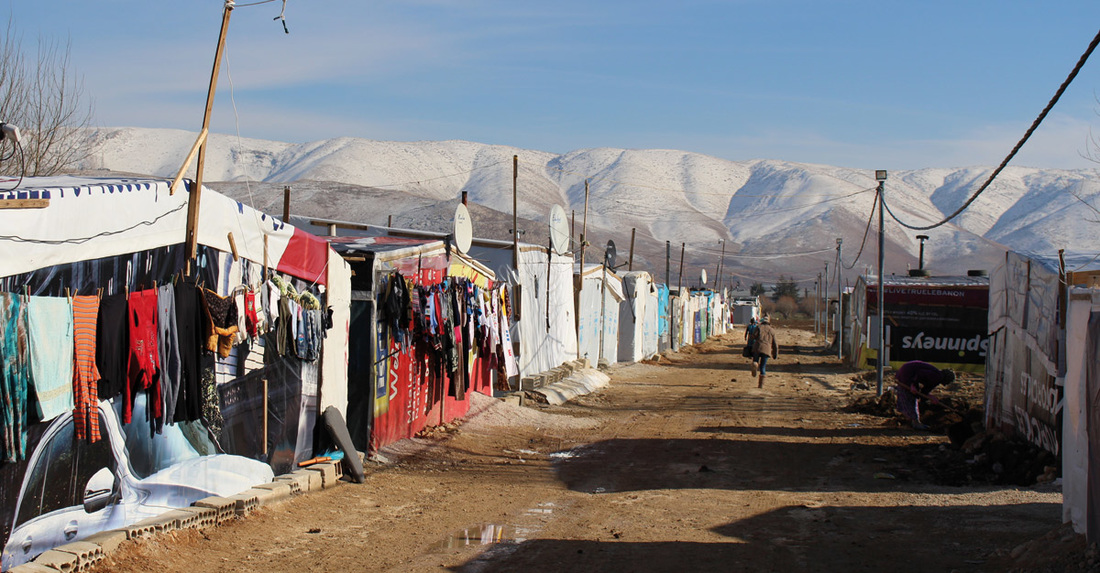|
Ian Birrell’s piece on Syrian refugee camps in last Monday’s Independent, stated that ‘Refugees may have escaped hell, but that does not mean we force them into purgatory’. The article shows how many huge refugee camps, far from being humane sanctuaries, are actually dismal outposts, rife with abuse and exploitation, penning in families for convenience and preventing them from finding work. In Lebanon the government has taken a different approach. Rather than creating vast refugee camps, Syrian refugees tend to be scattered into many smaller informal settlements. This is mainly as a result of the problems caused by large Palestinian refugee camps in the past. 500,000 Palestinian refugees have now lived in Lebanon for over 60 years in 12 official refugee camps across Lebanon where security is largely self-regulated and it is perceived as a location and source of militancy and instability.* To avoid this happening again the Lebanese Government made the decision not to allow official refugee camps within its borders. Despite the huge numbers Syrian refugees in Lebanon, very few live in camps. The refugee population is instead dispersed across 1,700 locations, including 1,400 informal tented settlements on relatively marginal pieces of land. Sadly though, there is still room here for exploitation and abuse. ‘The way things often work in the informal tented settlements’, explains project manager Nuna Matar, “is that a leader of a camp allows people to rent a space in his camp provided that he is the ultimate ruler. He tells people where to work, he takes children 9-10 years old to work so he can get a percentage on their day wage, he sometimes abuses young girls, (sometimes sexually) and also sends them to the field all day so he gets part of the profit of their labour. If a family does not have this work force and no girls to send to the field, the camp leader often evicts them from the camp”. Many Syrian refugees have become accustomed to living under this kind of dictatorship, however after the recent eviction imposed by the Lebanese army, more insecurity rose in these families as they had nowhere to go. As a response to this crisis, our partners rented a 11,000m2 piece of land and created a safe environment where people can settle. As a first step they put gravel half way throughout the camp and added electricity poles. Within weeks, 27 families had moved in and a new school was built so that the children could continue their studies. At the beginning of February gravel was spread through the remaining part of the camp to make room for more families. With careful planning (see diagram below) as each tent is pitched they are ensuring there is adequate space between them to prevent over crowding and unsanitary conditions. Nuna describes how “The atmosphere in the camp is amazing. People are enjoying a kind of freedom they have never known. We have set rules and regulations in the camp that ensure fair treatments for everyone”. Children are beginning to get back into their routine at school and a driver has been hired to bring in refugee children living outside the camp. “We are going to invest in the lives of these children and teach them values about their self-worth and really build the whole community” says Nuna. The need in this area is continually growing. Children on the Edge are supporting the running of a number of schools in refugee camps throughout the Bekaa Valley, and now beginning to contribute to the maintenance of this new camp, providing a vital safe environment for these vulnerable families. Find out more about the work here, and please consider donating to the project * INEE (2014) Lebanon Minimum Standards for Education in Emergencies, New York: Inter-Agency Network for Education in Emergencies (INEE) Support usComments are closed.
|
RECEIVE OUR EMAILSBlog Categories
All
Archives
July 2024
|
|
JOIN US ON SOCIAL MEDIA
|
Annual Report | Contact Us | Jobs | Media Centre | Resources | Shop
Accessibility & Policies: Accessibility | Equity, Diversity & Inclusion Policy | Complaints| Privacy Policy | Safeguarding
Accessibility & Policies: Accessibility | Equity, Diversity & Inclusion Policy | Complaints| Privacy Policy | Safeguarding
Children on the Edge, 5 The Victoria, 25 St Pancras, Chichester, West Sussex, PO19 7LT, UK | 01243 538530 | [email protected]




 Give monthly
Give monthly Fundraise for us
Fundraise for us RSS Feed
RSS Feed
